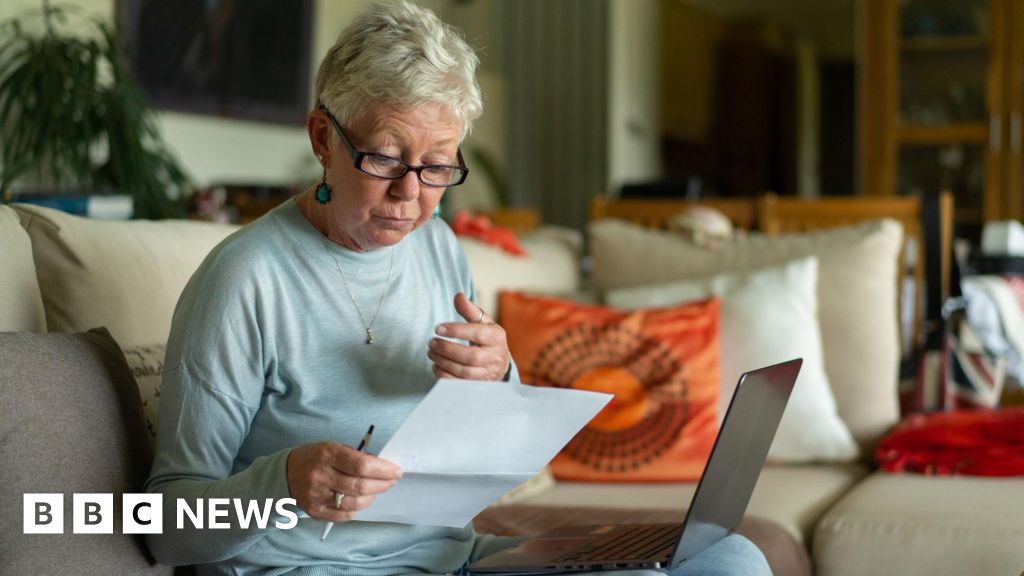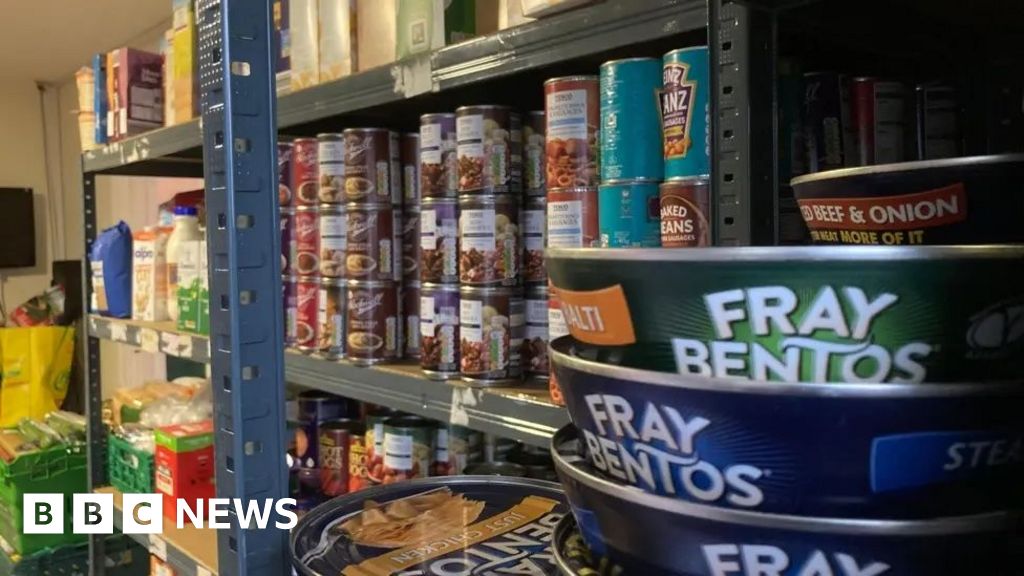ARTICLE AD BOX
By Ashley John-Baptiste
BBC News

Pietro and his mum pooled their savings to buy the car
Consumers buying second-hand cars online are being warned to beware scams, after a rise in cases of fraud.
It comes after a BBC investigation exposed a fake car dealership website called Auto-Promotions that defrauded victims out of thousands of pounds.
There were almost 3,000 reports of online vehicle fraud in 2021, a rise of 21% on 2019, Action Fraud suggests.
Meanwhile, consumer groups warn the scam could be repeated as more people look for a bargain online.
Pietro Pagliuca from West Yorkshire transferred almost £4,000 to Auto-Promotions for a second-hand Nissan Qashqai after his old one broke down. The name Auto-Promotions was taken from a former legitimate car dealership to appear convincing. The family company is nothing to do with the fake website under investigation, but is still listed on Companies House - the government agency that records the details of businesses.
After a phone chat with someone purporting to be the sales director, Pietro decided to part with his cash. He was even more reassured when he saw what he thought was a company stamp on the invoice they sent him.
"I honestly didn't have doubts about them. It all looked legit, and a lot of companies deliver stuff these days," he says.
He planned to use the car to take out his elderly mother, who has mobility issues - the pair had pooled their entire savings. But the car never arrived.
"It's just really upsetting. I feel let down, annoyed and a bit embarrassed," Pietro says.
He reported the online transaction to his bank, and earlier this month they gave him half of the money back.
The online dealership fooling consumers and costing them thousands. But who's behind it?
The Auto-Promotions website was active from March this year to early September, when it was shut down by police following our investigation. The people behind the scam remain at large.
In that time, it advertised hundreds of second-hand vehicles at bargain prices. It appears the car details were taken from legitimate online dealerships where they were more expensive.
The BBC has spoken to eight people across the UK with similar experiences to Pietro.
Tips for buying cars online:
- Don't send money via bank transfer
- Use money-protected services like credit card or paypal
- Get the information beforehand such as registration number and do some digging
- Ensure all documentation is available
- Buy from an approved dealer who is local, if possible
- Alert trading standards if you think you're being scammed
National Trading Standards described the website as sophisticated due to the level of detail involved.
In addition to using the name of a legitimate former car dealership, the address on the scam website was a real garage based in Fife, Scotland. Significantly, the former legitimate dealership that Auto-Promotions took its name from, was once based at that garage. This meant the details matched those listed at Companies House.
It also appears all the advertised second-hand cars had MOTs.
The Auto-Promotions website displayed its address as a legitimate repairs garage run by Harry Cairney
The scam website included professional headshots of 'staff' - who were actually people who had no idea their images were being used fake identities until the BBC contacted them. One was a former journalist for the Financial Times, another a Hollywood actor.
There were 2,969 reports of online vehicle fraud in England, Wales and Northern Ireland in 2021, up 21% from 2,459 reports in 2019, Action Fraud, the UK's national reporting centre for fraud and cybercrime, said. This cost consumers almost £9.5m last year.
National Trading Standards says consumers looking for a bargain due to the cost of living crisis, coupled with new car supply problems, means criminals have identified a demand which they will always exploit.
Mike Andrews, head of eCrime at the organisation, said this was the first website of this nature and scale the consumer body had encountered.
"Normally we're used to seeing the odd car for sale on other platforms… but to have an entire website set up to defraud consumers is very unusual," he said.
The defrauded consumers were not the only victims.
Harry Cairney, who runs the Fife garage whose address Auto-Promotions falsely listed as its own, says hundreds of people have called and visited in recent months, enquiring about vehicles advertised on the fake company's website.
He says he has been confronted by angry customers, which has taken a toll on him and his business. He says all he can do is make people aware of the scam by putting up an alert on his garage's Facebook page.
In fact, last month, Libin Vidhyadhar - a student based in Preston - was on the verge of buying a Mini Cooper advertised on Auto-Promotions for £3,900.
"It was too good to be true, so I had to check out the address," he says.
At the garage he met Harry, who informed him of the scam. "I was so grateful I didn't waste my money," says Libin.
While news of the website's closure is welcomed by those who have lost money, Mike Andrews from National Trading Standards warns that does not mean the end of the fraud.
"The criminals will often quickly have another website up and running in a matter of days. It's a constant game of cat and mouse," he says.
Meanwhile, Pietro says it will take him over a year to save up to buy another car. Until then, he will have to make do with a bicycle and his mother will largely be confined to her house.
Additional reporting by Nicola Hudson.

 2 years ago
94
2 years ago
94








 English (US) ·
English (US) ·